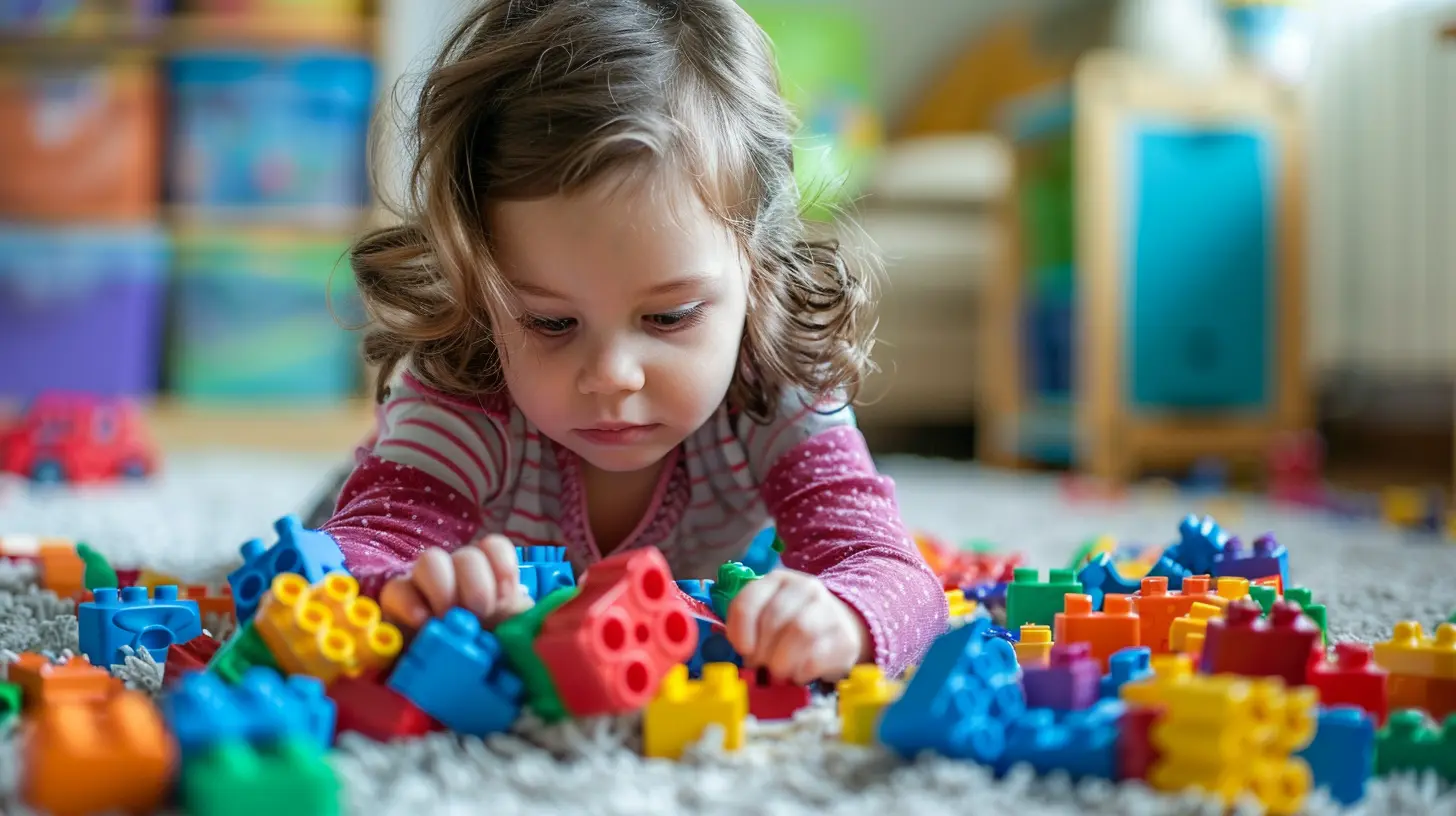How Early Experiences Shape Cognitive Development in Children
4 June 2025
Cognitive development in children is like building a house. The foundation must be strong, or the rest of the structure won’t hold up well. Early experiences lay this foundation, shaping how a child thinks, learns, and interacts with the world. But how exactly do these experiences mold a child's mind? Let's dive deep into the fascinating world of cognitive development.

Understanding Cognitive Development
Before we get into the nitty-gritty, let's break down what cognitive development actually means.Cognitive development refers to how children acquire, process, and use information. It involves skills like memory, problem-solving, language acquisition, and perception. This process doesn't happen overnight—it begins the moment a baby is born (arguably earlier in the womb) and continues throughout childhood.
The brain is incredibly plastic during these years, meaning it adapts and changes based on experiences. The different interactions, environments, and stimuli children are exposed to all factor into their cognitive growth.

The Role of Early Experiences in Cognitive Development
Every experience a child has—whether positive or negative—plays a role in shaping their brain. Here are some of the key areas influenced by early experiences:1. Neural Connections and Brain Development
A newborn’s brain starts with around 100 billion neurons (yes, you read that right). But here's the catch—these neurons need to connect with each other to form pathways that allow learning and thinking. These connections, called synapses, develop rapidly in response to experiences.For example, when a baby hears their parents talk frequently, the neurons responsible for language development strengthen. But if language exposure is minimal, these connections weaken, making it harder for the child to acquire communication skills later on.
2. The Impact of Parental Interaction
Ever noticed how babies stare at their parents’ faces? That's because they learn from facial expressions, tone of voice, and physical touch. A child's first teachers are their parents, and the quality of interaction they receive significantly affects cognitive abilities.- Talking and responding to a baby’s coos enhances language skills.
- Reading books together builds vocabulary and comprehension.
- Physical affection (hugs, cuddles, and skin-to-skin contact) fosters emotional security, which is critical for learning.
3. The Power of Play in Learning
Play is often underestimated, but it’s actually one of the most powerful tools for cognitive growth.- Pretend play helps kids develop problem-solving skills and creativity.
- Building block games boost spatial awareness and logical thinking.
- Outdoor play improves attention span and motor skills.
Basically, every time a child plays, they’re learning something new. Play isn’t just fun—it’s brain-building in action!
4. Stress and Its Effects on Cognitive Growth
Not all early experiences are positive, and unfortunately, chronic stress can negatively impact cognitive development. When children are exposed to toxic stress (such as neglect, abuse, or extreme poverty), their developing brains release excessive amounts of cortisol – the stress hormone.High cortisol levels can damage crucial areas of the brain, particularly the hippocampus, which is responsible for memory and learning. Stressful environments can lead to difficulty concentrating, emotional instability, and poor academic performance later in life.
However, supportive and nurturing relationships with caregivers can help buffer the effects of stress, fostering resilience in children.
5. The Role of Nutrition in Early Cognitive Development
You’ve probably heard the saying, “You are what you eat.” Turns out, this is especially true for brain development. Proper nutrition during early childhood is essential for cognitive growth.Key nutrients for brain health include:
- Omega-3 fatty acids (found in fish, nuts, and seeds) – crucial for brain cell development.
- Iron (found in leafy greens and meat) – supports oxygen flow to the brain.
- Choline (found in eggs and dairy) – helps with memory and learning.
Poor nutrition can result in cognitive delays, difficulties with memory and attention, and even long-term learning disabilities.
6. The Influence of Social Interaction
From babbling as infants to playing with peers in preschool, children develop cognitive skills through social interactions.- Conversations with adults and peers help develop communication and reasoning skills.
- Watching and imitating others strengthens learning through observational experiences.
- Cooperative play teaches problem-solving, negotiation, and teamwork.
Social environments are like practice arenas for critical thinking and decision-making. Children who interact with diverse groups of people early on tend to develop stronger cognitive flexibility.

Sensitive Periods: The Windows of Opportunity
In child development, there are certain "windows of opportunity" when the brain is particularly responsive to learning specific skills. Experts call these sensitive periods.For example:
- The best time to learn language is between birth and 7 years old.
- The foundation for logical reasoning and problem-solving is set before age 5.
- Emotional regulation and social intelligence develop most rapidly in early childhood.
If children miss these critical windows—due to neglect, lack of stimulation, or trauma—it can be much harder for them to catch up later. That’s why early experiences are so important!

How Caregivers Can Support Cognitive Growth in Early Childhood
Now that we understand the impact of early experiences, let’s talk about how parents, caregivers, and educators can help optimize a child’s cognitive development.1. Talk, Listen, and Engage Regularly
- Narrate daily activities to expose children to language.- Answer their endless "why" questions (even when it's exhausting!).
- Encourage storytelling and conversations at the dinner table.
2. Provide a Stimulating Environment
- Fill the home with books, puzzles, art supplies, and sensory toys.- Expose children to different sounds, textures, and experiences.
- Take them to museums, parks, and community events.
3. Foster Healthy Routines
- Prioritize sleep, as it plays a crucial role in memory consolidation.- Provide balanced meals rich in essential nutrients.
- Create a consistent schedule with time for both learning and free play.
4. Encourage Play-Based Learning
- Join in their pretend play—it strengthens their imagination.- Give them open-ended toys (like blocks and art materials) to encourage creativity.
- Let them explore nature—outdoor play can enhance cognitive skills.
5. Offer Emotional Support
- Be a calm and reassuring presence in their lives.- Encourage resilience by allowing children to solve problems on their own.
- Teach emotional regulation through positive reinforcement, not punishment.
Conclusion
A child's brain is like a sponge, soaking up every experience, interaction, and environment it encounters. The first few years of life are crucial in shaping cognitive abilities, and everything from playtime and social interactions to nutrition and emotional support plays a role.As caregivers, parents, and educators, the best gift we can give children is a nurturing and stimulating environment that fosters healthy brain development. The seeds planted in early childhood will influence their cognitive abilities, problem-solving skills, and emotional resilience for years to come.
So, next time you interact with a child, remember—you’re literally helping to build their future, one experience at a time.
all images in this post were generated using AI tools
Category:
Cognitive DevelopmentAuthor:

Ember Forbes
Discussion
rate this article
2 comments
Pia Meyers
This article effectively highlights the critical role of early experiences in shaping cognitive development. It underscores the interplay between environment and biology, emphasizing the importance of nurturing, enriching experiences during formative years.
June 11, 2025 at 2:57 AM

Ember Forbes
Thank you for your insightful comment! I'm glad you found the article's emphasis on the interplay between environment and biology valuable in understanding cognitive development.
Seraphis Phelps
Foundations of mind, shaped early.
June 6, 2025 at 2:37 AM

Ember Forbes
Thank you! Early experiences indeed lay the groundwork for cognitive development, influencing how children think and learn throughout life.


